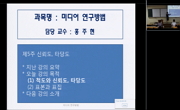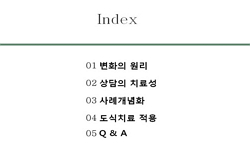The former studies of the conceptualization of Korean "Jeong" had not utilized various data set, such as corpus. Furthermore, the number of the following studies does not seem to be sufficient, considering the language's rapid change in these days. Th...
http://chineseinput.net/에서 pinyin(병음)방식으로 중국어를 변환할 수 있습니다.
변환된 중국어를 복사하여 사용하시면 됩니다.
- 中文 을 입력하시려면 zhongwen을 입력하시고 space를누르시면됩니다.
- 北京 을 입력하시려면 beijing을 입력하시고 space를 누르시면 됩니다.

‘정(情)’의 개념화 연구 - 공기(共起) 관계를 중심으로 = A study on the conceptualization of "Jeong" in Korean - Focusing on the co-occurrence relation
한글로보기부가정보
다국어 초록 (Multilingual Abstract)
The former studies of the conceptualization of Korean "Jeong" had not utilized various data set, such as corpus. Furthermore, the number of the following studies does not seem to be sufficient, considering the language's rapid change in these days. Therefore, this study had collected co-occurrence relations related to "Jeong" from dictionaries, previous studies, and corpus data. Moreover, it had analyzed them to figure out and trace the conceptualization, the connoted meaning, and the daily usage of "Jeong", with the aim of broadening the category of its conceptualization. Firstly, this study tried to comprehend the actual usage of "Jeong" by scrutinizing the following Josa(postposition) and predicates. According to the result, it was discovered that "Jeong" had been conceptualized as "Concrete objects", which can be divided into "Dynamic objects" such as "plants and animals ", "moving objects", "enemy", and "fluid substances", and "Static objects" such as "substances that can be verified and quantified", “solid objects that can be held”, "liquids that are confusing in our minds", "nutrients that people need", and "tools used in daily life". Additionally, "Jeong" can also be conceptualized as an "Abstract object" such as a "desired object" or "cause". Lastly, this study revealed that the connoted meaning of "Jeong" gets changed corresponding with its co-occurrence relation, and also the conceptualization too.
참고문헌 (Reference)
1 유진희, "한국의 감성적 문화유전자 '정(情)'의 글로벌 수용 가능성에 대한 탐구-한국 드라마를 중심으로-" 콘텐츠문화학회 6 : 11-58, 2015
2 권연진, "한국어와 영어의 대중가요에 나타난 ‘사랑’ 은유의 양상" 한국언어과학회 21 (21): 1-20, 2014
3 유혜선, "한국어 학습자를 위한 ‘情’ 은유에 관한 시론 -초코파이 광고를 중심으로-" 국제한국언어문화학회 17 (17): 99-127, 2020
4 김하수, "한국어 연어 사전" 커뮤니케이션북스 2007
5 국립국어원, "표준국어대사전"
6 사회과학출판사 편집부, "조선말 대사전" 박이정 2007
7 임지룡, "인지의미론" 탑출판사 1997
8 권연진, "인지언어학에서 은유의 보편성과 상대성" 한국문화사 2017
9 나익주, "인지언어학" 한국문화사 415-443, 2000
10 임지룡, "의미의 인지언어학적 탐색" 한국문화사 2008
1 유진희, "한국의 감성적 문화유전자 '정(情)'의 글로벌 수용 가능성에 대한 탐구-한국 드라마를 중심으로-" 콘텐츠문화학회 6 : 11-58, 2015
2 권연진, "한국어와 영어의 대중가요에 나타난 ‘사랑’ 은유의 양상" 한국언어과학회 21 (21): 1-20, 2014
3 유혜선, "한국어 학습자를 위한 ‘情’ 은유에 관한 시론 -초코파이 광고를 중심으로-" 국제한국언어문화학회 17 (17): 99-127, 2020
4 김하수, "한국어 연어 사전" 커뮤니케이션북스 2007
5 국립국어원, "표준국어대사전"
6 사회과학출판사 편집부, "조선말 대사전" 박이정 2007
7 임지룡, "인지의미론" 탑출판사 1997
8 권연진, "인지언어학에서 은유의 보편성과 상대성" 한국문화사 2017
9 나익주, "인지언어학" 한국문화사 415-443, 2000
10 임지룡, "의미의 인지언어학적 탐색" 한국문화사 2008
11 나익주, "은유의 신체적 근거" 담화⦁인지학회 1 : 187-214, 1995
12 국립국어원, "우리말 큰사전" 국립국어원 1992
13 연세대학교 언어정보개발연구원, "연세한국어사전" 두산동아 2006
14 임혜원, "언어와 인지" 한국문화사 2013
15 임지룡, "사랑'의 개념화 양상" 한국어문학회 (87) : 201-233, 2005
16 임지룡, "말하는 몸: 감정표현의 인지언어학적 탐색" 한국문화사 2006
17 임지룡, "기본 감정 표현의 은유화 양상 연구" 한국어학회 17 (17): 135-162, 2002
18 윤평현, "국어의미론 강의" 역락 2013
19 임혜원, "국어 사물 개념의 은유적 확장 연구" 한국어의미학회 19 : 125-155, 2006
20 국립국어원, "국립국어원 문어 말뭉치(버전 1.2)"
21 국립국어원, "국립국어원 구어 말뭉치(버전 1.1)"
22 배도용, "‘죽음’의 은유적 개념화 양상- 최근의 인터넷 자료를 중심으로 -" 우리말학회 (67) : 177-204, 2021
23 나익주, "‘정’과 ‘한’의 은유적 개념화" 한국어의미학회 20 : 91-120, 2006
24 임지룡, "‘기쁨’과 ‘슬픔’의 개념화 양상" 국어학회 37 : 219-249, 2001
25 Lakoff, George, "Women, Fire and Dangerous Things: What Categories Reveal the Mind" The University of Chicago Press 1987
26 Ogden, C, "The meaning of meaning" Routledge & Kegan Paul 1923
27 Gibbs, Raymond Jr., "The Poetica of Mind" Cambridge University Press 1994
28 Johnson, Mark, "The Body in the Mind: The Bodily Basis of Meaning, Imagination, and Reason" The University of Chicago Press 1987
29 Lakoff, George, "Philosophy in the Flesh" Basic Books 1999
30 Joan L. Bybee, "Morphology: A Study of the Relation between Meaning and Form" J. Benjamins 1985
31 Lakoff, George, "Metaphors We Live By" The University of Chicago Press 1980
32 Kövecses, Zoltan, "Metaphor: A Practical Introduction" Oxford University Press 2002
33 Kövecses, Zoltan, "Metaphor and Emotion: Language, Culture, and Body in Human Feeling" Cambridge University Press 2000
34 Lakoff, George, "Foundations of Cognitive Linguistis, Vol 1: Theoretical Prerequisities" Standford University Press 1987




 KCI
KCI KISS
KISS






